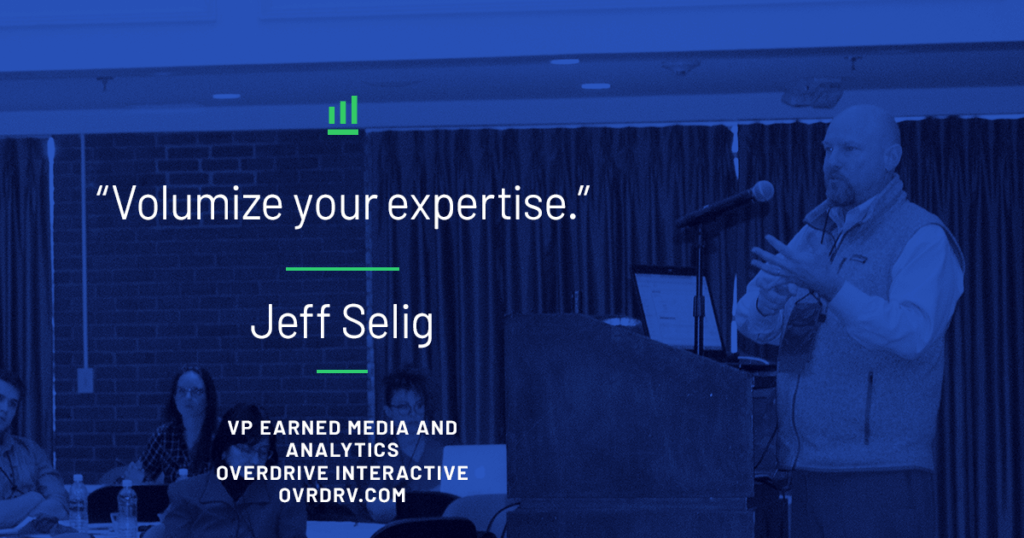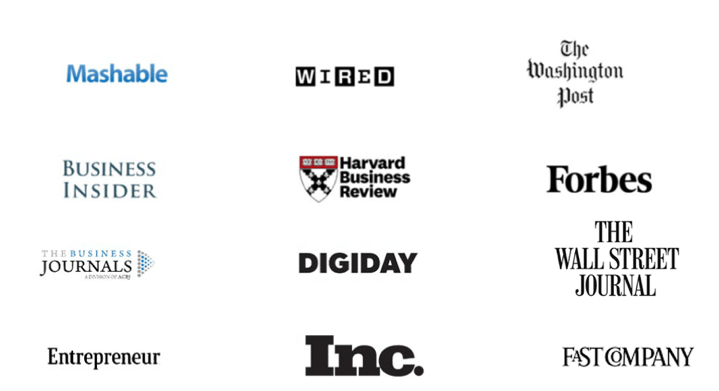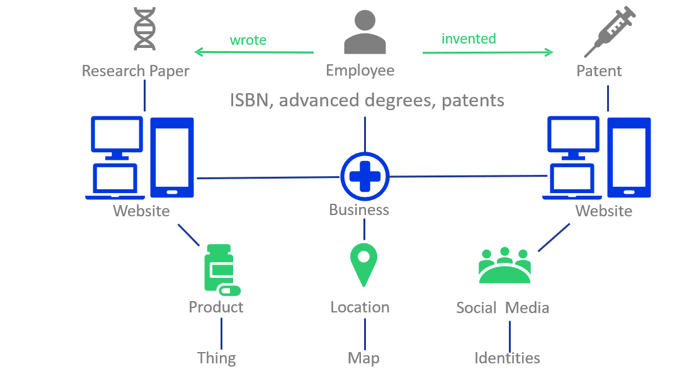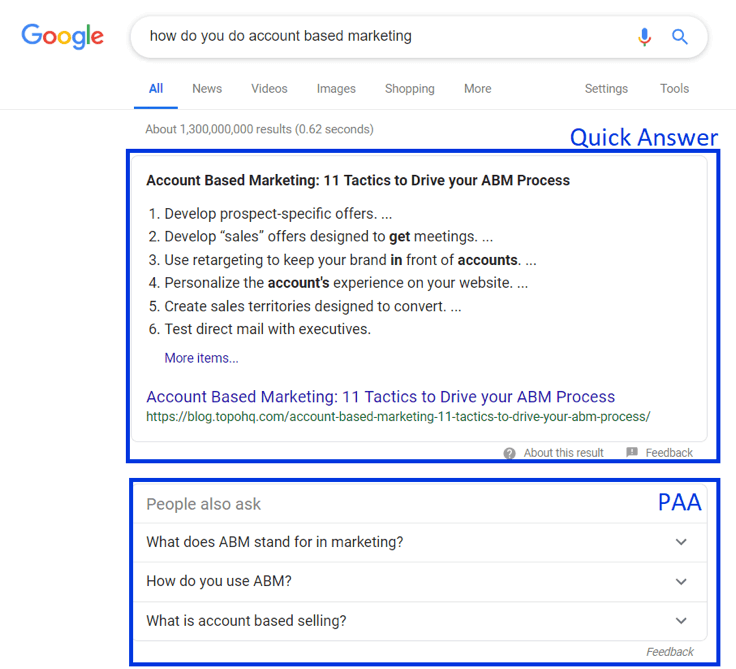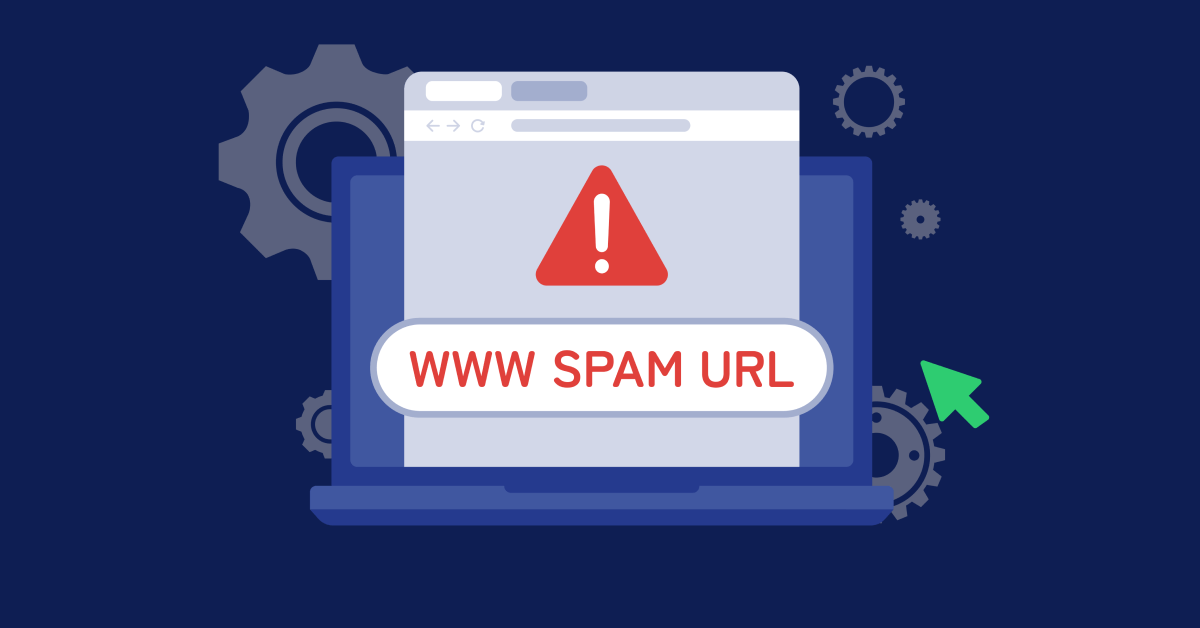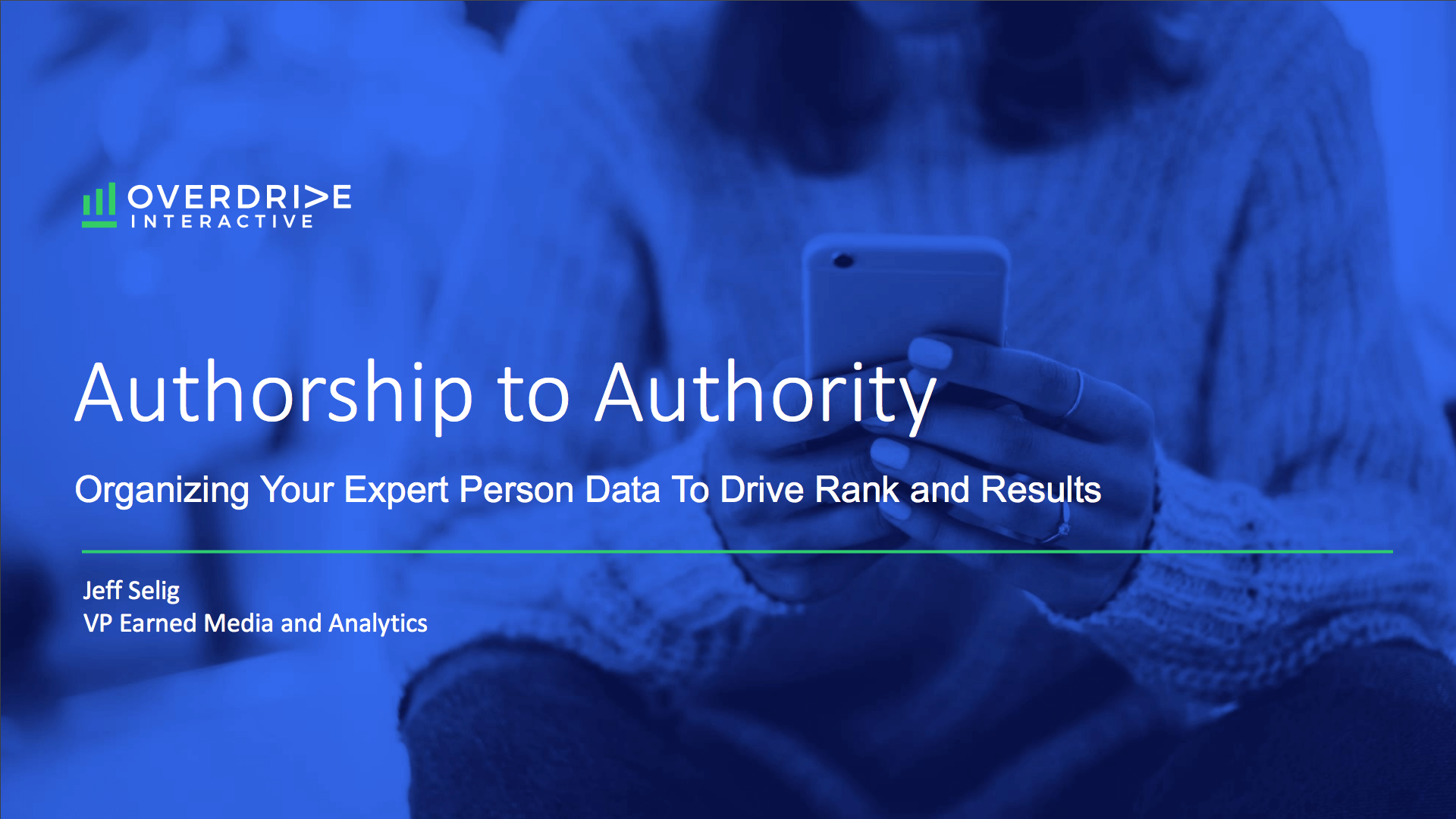
Authorship to Authority
Our VP of Earned Media and Analytics, Jeff Selig, recently partnered with BrightEdge to discuss the importance of leveraging subject matter experts into your content to build authority and rank in the search engines.
Check Out the Authorship to Authority SEO Deck and Webinar
Download our Authorship to Authority Deck & Watch the BrightEdge Webinar. We’re excited to offer this unabridged version of the deck that goes into even more detail than the one presented during the webinar.
Using Authoritative Content to Strengthen Your Ranking
Why does authority matter in search?
To understand why authoritative content matters in SEO, we have look at content from a search engine—and the consumer’s perspective. Recently, major search engines like Google have become increasingly focused on fighting disinformation spread through their products and services. This has culminated in the VP of Trust & Safety at Google, Kristie Canegallo, putting out a post discussing Google’s plan to combat disinformation. This post reinforces the need for companies to prioritize building their content using authoritative, trustworthy sources—to best serve consumers while also strengthening their search ranking results.
At Overdrive, we understand how to leverage trusted subject matter experts (SMEs) to build content that resonates with your consumers and aligns with SEO best practices.
How Subject Matter Experts Enhance Your Content
Typing a question into any search engine will often yield thousands—if not millions of results. How can you make sure consumers see and trust your content in a sea of information? That’s where SMEs come in.
HOW DO YOU IDENTIFY A SUBJECT MATTER EXPERT?
Simply put, a subject matter expert is a known and credible master of their field. They have a wealth of knowledge within their area of specialization—whether that’s a process, technology, type of equipment, material, or art. A SME is someone that inspires confidence in their knowledge base and has the credentials to back it up.
WHAT GIVES A SUBJECT MATTER EXPERT AUTHORITY?
Subject matter experts will generally have many achievements to their name. Here are some accolades they may have:
- Research publications and citations
- Patents
- Prestigious awards
- Television or movie appearances
- Public speaking appearances
- Honorary positions and titles
- Commercial publications
All these achievements help to “prove” a SME has authority and is worthy of a consumer’s trust. Identifying subject matter experts is the major step to turning authorship into authority.
BUILDING YOUR SUBJECT MATTER EXPERT’S AUTHORITY THROUGH PUBLIC RELATIONS
What if your company has SMEs that need a bit of an authority boost? The most powerful tool at your disposal is public relations (PR). Interviews with news organizations (print or video) can give your SMEs a major PR boost and reach your audience on platforms they already visit. By forming connections with other authoritative entities—you enhance the authority of your SME. Authoritative publications and platforms may vary depending on your SMEs area of expertise—but the examples below are great places to start:
How Google Evaluates Content for Trust and Authority
Understanding the guidelines set forth by search engines like Google is a key component of building an effective content marketing strategy. This post will briefly go over Google’s evaluation methods—the full Authorship to Authority Deck available for download here explores this subject in-depth.
GOOGLE’S CONTENT RATING GUIDELINES
Google’s Content Rating Guidelines are as follows:
- Who (think the company or person) is responsible for the site and its content
- Reputation of the site or creator of the main content
- Information on sources of reputation
- Overall page quality ranking
- Expertise/Authoritativeness/Trustworthiness (E-A-T)
- Clear & satisfying website information
- High level of E-A-T
- Reputation & E-A-T: Website or creators of the man content
- Page quality criteria for specific types of pages
- Understanding user intent
What does E-A-T stand for?
- Expertise, of the creator of the main content (MC)
- Authoritativeness, of the creator of the MC, the MC itself, and the website
- Trustworthiness, of the creator of the MC, the MC itself, and the website
While many of Google’s evaluation systems are automated and based on algorithms—this process is manual and involves real humans reading and evaluating your content. Not sure if your content strategy fits these guidelines? Contact us for a site audit and our content and SEO experts will let you know.
THE DIGITAL FOOTPRINT OF A SUBJECT MATTER EXPERT
Google is exceedingly good at tracking the accomplishments of a SME. All the publications, citations, awards, papers and articles associated with a SME leave a digital footprint that Google can track—and associate with their identity. The entity that a SME is associated with also factors into this digital footprint. In the example below, you can see the notable alumni (identities) Google associates with MIT (entity).
By leveraging SMEs with large digital footprints, you can build trust through association. Over time, these associations increase SEO visibility and build the total search engine authority of your organization, aka your entity. You can visualize this web of connections like the figure below:
Connecting the Dots: Building an Authoritative Content Strategy
Now that you understand what SMEs are, and the importance of using them within a content strategy, we can now explain how your brand can infuse SMEs into a content strategy.
YOUR AUDIENCE HAS QUESTIONS—GIVE THEM ANSWERS
Build your content around common questions that your audience is searching. Google uses Quick Answers and People Also Ask (PAA) to address popular questions. Use these questions to inform your content choices. You can also provide direct answers to these questions using schema support—strengthening results within Search Engine Results Pages (SERPs) like Quick Answers and PAA.
ACTIVATE YOUR SMEs
Once you’ve identified, educated, and onboarded your SME, your company will be ready to build out their dossiers. Their dossiers should include: academic credentials, awards, nominations, honors, recognitions, patents, and citations. Your company should also build out bio pages for your SMEs.
As an example, look at our CEO, Harry J. Gold. His bio page includes videos he’s featured in, speaking sessions, appearances, and his partnerships with other institutions and companies.
MAJOR CONTENT CONSIDERATIONS
This is a great opportunity to evaluate your existing content and assess KPIs. Your evaluation should include the following:
- How current pages perform and how they can be enhanced
- If there is ample content to satisfy a user’s needs
- Existing expert content and their authoritativeness and trustworthiness
- If your page topics have a positive reputation
- Your auxiliary information (e.g. contact pages, about us pages)
- Your supplementary content and if it enhances the user’s experience and enjoyment
- Whether the page is designed so users can easily locate information
- If your content is edited and maintained consistently
Your Company is Ready to Enhance Your Content with Authority
To review, we’ve discussed the following:
- How Subject Matter Experts Enhance Your Content
- Leveraging Your Experts in Your Content
- How Google Evaluates Content for Trust and Authority
- Creating an Authoritative Content Strategy
Your company now has all it needs to recognize SMEs and seamlessly integrate them into your content strategy—boosting your authority and trust.
Interested in getting more information on turning authorship into authority? Download the unabridged deck and watch the webinar for “Authorship to Authority” featuring our VP of Earned Media and Analytics, Jeff Selig. The unabridged deck features important information that was omitted from webinar due to time constraints—you’ll have access to them with this download. Browse our website to see our range of digital marketing services.




